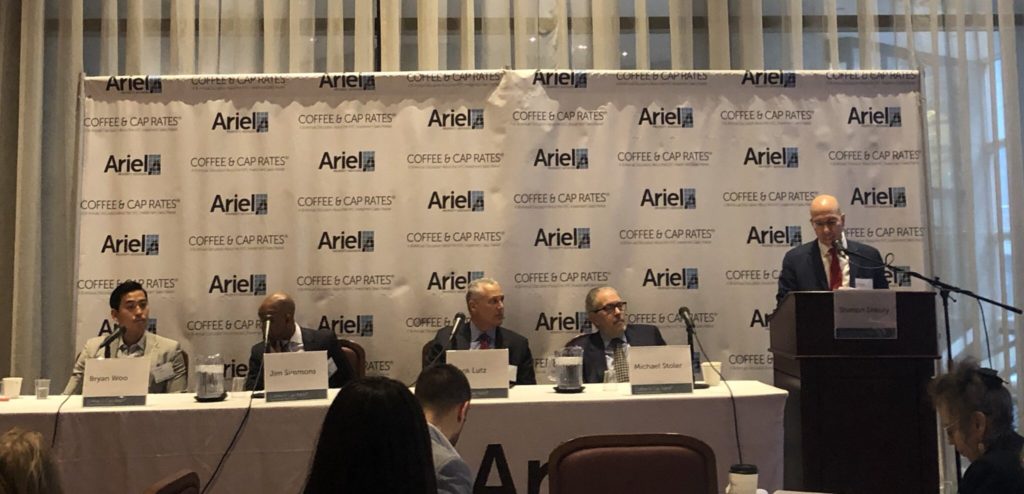Arbor 360° Success Story: Large Multifamily Acquisition With Bridge Financing Experienced multifamily owners needed short-term financing to acquire and reposition a large multifamily community The property was achieving below-market rents and in need of interior and exterior upgrades Arbor’s bridge financing helped the borrower complete renovations and increase property value See the full results by viewing the Success Story.
Las Vegas Multifamily Market Snapshot — Q4 2018

Las Vegas led the nation in rent growth in 2018, at 8.6% year-over-year. This strong performance was largely driven by strong population growth and a high concentration of prime-age workers. The addition of new supply to the market resulted in a slight uptick in the vacancy rate, but it remained among the lowest nationally.

Top Rental Markets for the Baby Boomer-Senior Segment

Rental demand for Baby Boomer-Senior renters is most concentrated in affordable, amenity-rich large apartment properties in smaller metros.

U.S. Multifamily Market Snapshot — Q4 2018

The U.S. multifamily market further solidified itself as the premier real estate asset class in 2018. Rent increases continued and vacancy rates remained low, despite high levels of development activity. Investment sales reached record-high volume levels, amid low cap rates and rising prices.

NYC Multifamily Market to Experience Slow but Stable Growth in 2019

Panelists at Ariel Property Advisor’s recent Coffee & Cap Rates℠ event in New York City reflected on the city’s rental market performance in 2018, as well as the factors and trends set to impact the sector this year, including interest rate volatility, as well as market and regulatory uncertainty.

Millennial Apartment Renters Flock to Smaller Urban Centers

Smaller metros offer a balance of affordable apartment rentals and growing economic opportunity that is increasingly catching the eye of transient Millennials. Millennials comprise an increasing share of the adult rental population moving from larger to smaller urban centers across asset types.

Las Vegas Posts Highest Multifamily Rent Growth in U.S. in 2018

The Las Vegas multifamily market led the nation with the highest rent growth during 2018, driven by strong migration trends and a high concentration of prime-age workers. A rise in new construction bolstered a slight increase in the vacancy rate, yet it remained among the lowest nationally.

Favorable Multifamily Market Trends to Continue in 2019

The U.S. multifamily market further solidified itself as the premier real estate asset class in 2018. Rents increased for the third consecutive year, while vacancy rates remained low despite historically high levels of development activity. Low cap rates and rising prices didn’t restrain investment activity. Given the favorable demographics surrounding the sector, multifamily investors can expect these trends to continue in 2019.

Multifamily Reset on the Horizon as Gen Z Knocks at the Door

As the generation behind Millennials, known as Gen Z, begins to reach adulthood, the apartment market seems ready for a reset. Property managers will need to adjust their strategies to maintain their assets’ appeal.

Small Balance Multifamily Investment Snapshot — Q4 2018

Small balance multifamily loan volume, which includes loans between $1 million and $5 million, reached $51.7 billion in 2018, the highest level of activity in Chandan Economics’ post-financial crisis estimates. Here’s a quick look at the small balance multifamily finance and investment benchmarks for Q4 2018.

Multifamily Rents Surge in Smaller Metros, Even as California Markets Feel the Heat

The renewed economic and cultural dynamism of smaller U.S. metros has pulled apartment rents up, while the housing crisis in the Golden State remains unrelenting. Of the 10 metros that showed the highest average rent increases for small apartment buildings, the majority comprised medium-sized urban centers.


